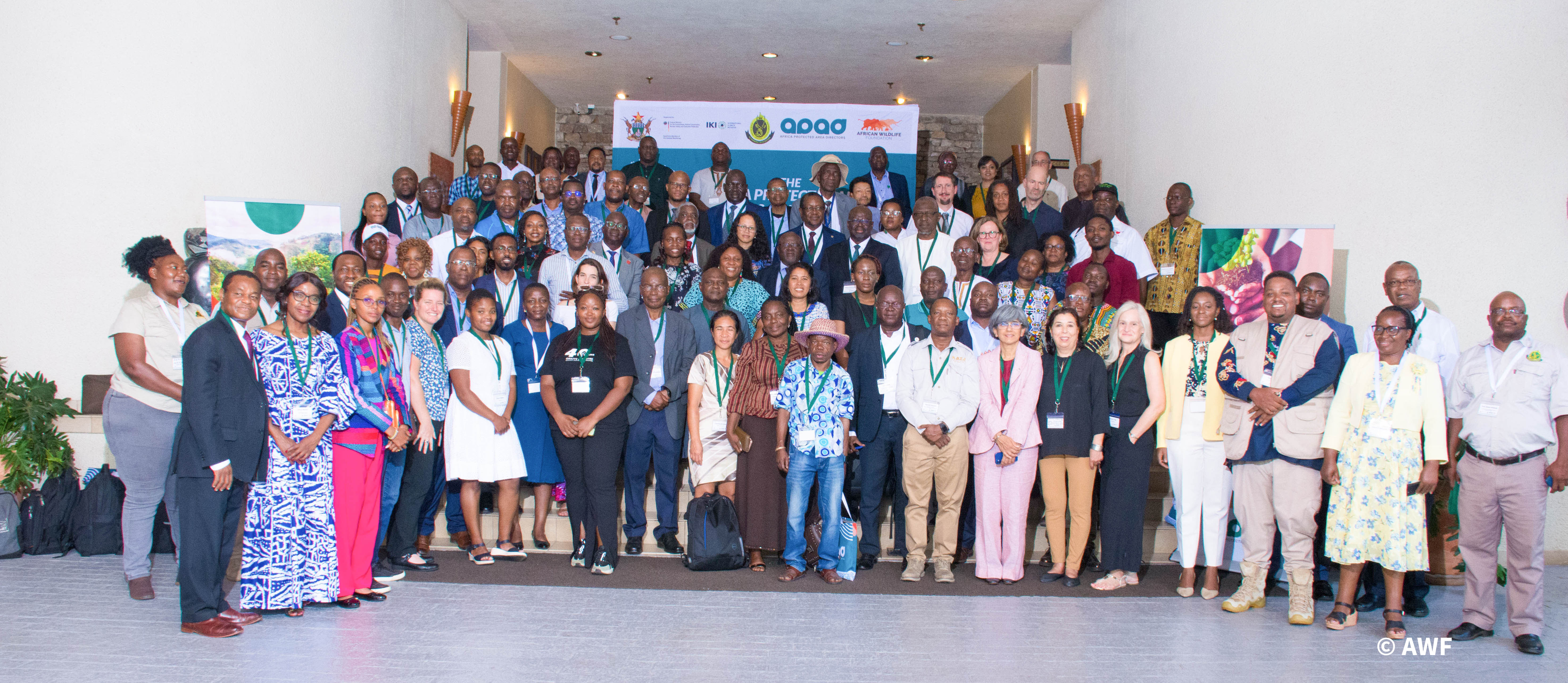2nd Africa's Protected Area Director’s Conference concludes in Zimbabwe, unveiling conservation blueprint
General Inquiries
Tel:+254 711 063 000
Ngong Road, Karen, P.O. Box 310
00502 Nairobi, Kenya

Victoria Falls, Zimbabwe, March 9, 2024—The Second African Protected Areas and Conservation Conference (APAD) concluded yesterday, highlighting the pivotal role of Protected and Conserved Areas (PCAs) in fostering sustainable development across Africa. The conference brought together over 150 participants, including protected area directors and their designated representatives from 31 countries.
Africa's natural resources, crucial for its socio-economic development, face increasing threats from land-use changes, overexploitation, and the impacts of climate change. Recognizing the importance of biodiversity to Africa's future, APAD reaffirmed the significance of integrating nature conservation into sustainable development agendas.
Key outcomes and policy implications from the conference include:
- Policy Alignment: PCAs are essential for achieving Africa's biodiversity targets, emphasizing the need for integrated landscape management (ILM)-supportive policies across sectors to avoid conflicts and promote conservation alongside productive land use.
- ILM Frameworks: Effective ILM frameworks, supported by national policies and legal structures, are critical for ensuring sustainable development strategies that embrace conservation and productive land use.
- Empowering IPLCs: Recognizing IPLCs as central to conservation efforts, APAD emphasized the importance of supportive policies, secure land tenure, and collaborative actions to empower IPLCs in conservation initiatives.
- Collaboration: APAD committed to collaborating with the Alliance for Indigenous Peoples and Local Communities (AICA) to address common conservation challenges and advance global biodiversity and climate goals.
- Documentation and Recognition: National registers of PCAs, with Free Prior Informed Consent (FPIC), will be established to highlight the importance and value of PCAs and Community Conservation Areas (CCAs).
- Youth Engagement: APAD will collaborate with APAC Youth to implement conservation frameworks and promote inclusive decision-making processes.
- Establishment of Major Groups: APAD announced the establishment of IPLCs and Youth major group to facilitate collaborative planning, implementation, and benefit sharing.
- Capacity Building: Recognizing the importance of capacity building, APAD emphasized the need to enhance skills among stakeholders for effective PCA management, particularly in climate-resilient practices.
- Financial Partnerships: APAD will seek partnerships with local and international financial institutions to improve access to funding for conservation initiatives.
Looking ahead, APAD and its partners will focus on enhancing regional and continental endorsement, synergizing efforts with global goals, and mobilizing funds to support its action plan, including through the establishment of a pan-African Conservation Trust (A-PACT).
The Zimbabwe Parks and Wildlife Management Authority hosted the conference, which was supported by APAD, the African Wildlife Foundation (which also houses the APAD secretariat), and the German Federal Ministry for the Environment, Nature Conservation, Nuclear Safety, and Consumer Protection (BMUV).
About APAD: The African Protected Areas and Conservation Conference (APAD) is a platform dedicated to promoting the conservation and sustainable development of Protected and Conserved Areas across Africa. Through collaboration with diverse stakeholders, APAD aims to address common conservation challenges and advance global biodiversity and climate goals.
For more information, please contact Wambui Odhiambo at [email protected].